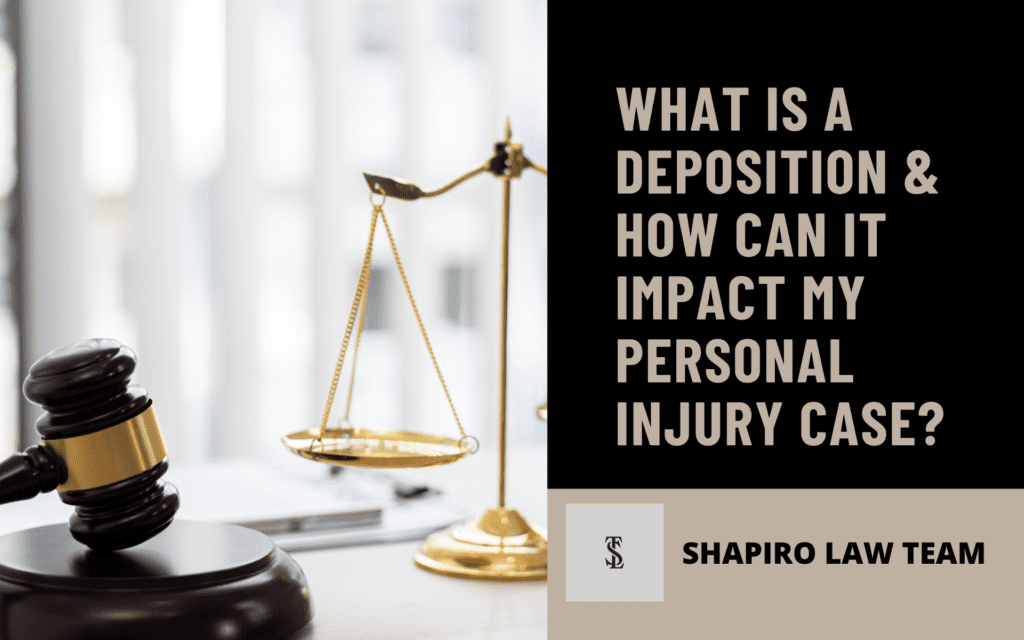Some people have heard the word deposition during an episode of their favorite crime show, but most people don’t know what it means or how it can help resolve a legal matter. If you’re involved in a personal injury case, you may be subpoenaed, which requires you to give testimony.
To provide more clarity on this subject, we’ll unpack the process of depositions and highlight how it can impact personal injury cases.
Table of Contents
ToggleIn simple terms, a deposition is an out-of-court testimony.
In detailed terms, a deposition is when a person appears at a specified time and place to give sworn testimony—typically with a court reporter present.
This event happens within the discovery phase of a personal injury case (after the filing of a lawsuit, but before trial or settlement). In some instances, the trial lawyer may request that the deposition testimony be used in court.
Throughout this question-and-answer session, both parties gather information:
If you’ve been subpoenaed, Shapiro Law Team litigators will represent you during the deposition and throughout the legal process.
If you were summoned to a deposition, you are legally obligated to attend.
It may seem like a waste of time, but it’s an essential aspect of a personal injury case. Depositions are an opportunity to tell your side of the story. They also clarify the at-fault party’s recollection of the events.

Facing a trial attorney can feel daunting and overwhelming, especially if you’ve never done it before. But it’s not the time to panic. When you feel uncertain about attending a deposition, a trial attorney can help.
When it comes to a deposition, you need to keep in mind everything you say is on the record. Misspeaking or using a vague statement could give the at-fault party a reason to deny your claim.
Here’s how the Shapiro Law Team can help you prepare for a deposition:
Please Note: Depositions are given under oath, which means all answers have to be truthful. However, a qualified attorney will let you know when it’s okay to respond with “I don’t remember” or “I’m not sure.”
The specific questions asked at a deposition will depend on the specifics of your personal injury case. Below, we’ve provided a general overview of questions and topics.
You will likely need to confirm general yet identifying information about yourself: address, job, legal history, or medical history.
You will likely face questions regarding the events leading to your injury, the medical care you received, and the cause of the injury.
The opposing counsel will ask about your medical care and how the injury has impacted your lifestyle. You may even be questioned about the loss of future earning capacity.
If you are injured due to the careless actions of another individual, you need immediate legal representation. Fortunately, the Shapiro Law Team will walk you through this entire process. Not only will they handle every aspect of your claim, but in the event of a deposition, they’ll make sure you’re prepared.